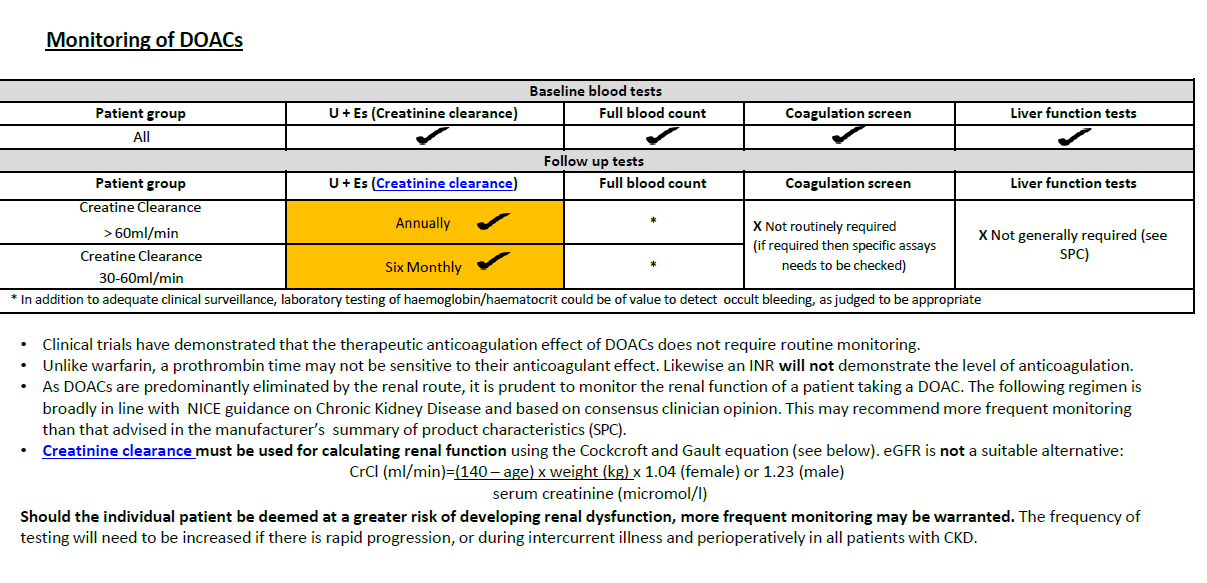DOAC - kidney function monitoring
- important to consider renal function (i.e. to 'think kidneys') when selecting the dose of any DOAC for each individual patient
- usual measure of renal function (estimated Glomerular Filtration Rate (eGFR)) is not generally recommended for DOAC dosing decisions. In the major clinical trials of patients with non-valvular Atrial Fibrillation (AF) dosage was based on estimates of renal clearance based on the Cockcroft and Gault (CG) equation. This is not the same as the eGFR reported by most pathology services
- where creatinine clearance is calculated to determine DOAC dose this should be done using the Cockcroft and Gault formula and ACTUAL body weight
- usual measure of renal function (estimated Glomerular Filtration Rate (eGFR)) is not generally recommended for DOAC dosing decisions. In the major clinical trials of patients with non-valvular Atrial Fibrillation (AF) dosage was based on estimates of renal clearance based on the Cockcroft and Gault (CG) equation. This is not the same as the eGFR reported by most pathology services
Renal Clearance of DOACs
Drug | Renal Clearance |
Apixaban | 27% |
Dabigatran | 80% |
Edoxaban | 50% |
Rivaroxaban | 35% |
An incorrect DOAC dose may have important efficacy and safety implications:
- Using a lower dose when patients do not meet the criteria for dose reduction may increase the risk of embolic events and result in potentially preventable strokes.
- Using a higher dose where the renal function indicates that a dose reduction is necessary may increase the risk of bleeding

Notes:
- Anticoagulation is generally prescribed for older patents
- an audit in primary care reported 4 in 5 patients taking anticoagulants were aged 65 or over and 1 in 2 were aged 75 or over. The risk of developing kidney disease also increases with age, so DOACs are likely to be prescribed for a substantial number of people who will require dosage adjustment. Regular monitoring to identify and address the consequences of any deterioration in kidney function over time is also important
Reference:
- NICE. BNF Treatment Summaries. Oral anticoagulants. 2025 (online)
- Dunois C. Laboratory Monitoring of Direct Oral Anticoagulants (DOACs). Biomedicines. 2021 Apr 21;9(5):445.
Related pages
Create an account to add page annotations
Add information to this page that would be handy to have on hand during a consultation, such as a web address or phone number. This information will always be displayed when you visit this page